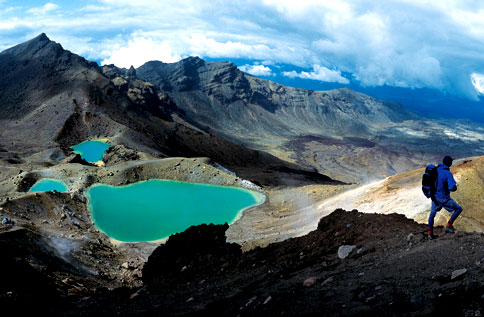|
Зовнішнє незалежне оцінювання до предмету Англійська мова, 11 клас
Тема «Семестрове оцінювання з читання»
Penguin Appeal
The University of Canterbury in New Zealand is situated in Christchurch, one of the southernmost cities in the world, and has long looked to the north for ways to bridge the physical distance between itself and other international areas of higher education. Now it is turning its attention in a different direction by offering a postgraduate course in Antarctic studies billed as being the first of its kind in the world.
Although Canterbury is not the only university at which Antarctica is studied, what makes its programme unique is that it is at graduate level and interdisciplinary in its approach – it isn’t just another programme in popular science. It’s also built around a field trip to the region.
Relatively few of the students on the inaugural course come from a scientific background. “These students aren’t people who will necessarily end their course being able to debate geology and physics”, says course director Professor Bryan Storey. Instead, the expectation is that they will come out relatively well versed in contemporary Antarctic issues and what status they have in international affairs. That takes in everything from the polar continent’s fast-depleting ozone layer and its effect on global warming, to issues of international laws and tourism.
The interdisciplinary nature of the course was impressed on participants during their recent expedition to the continent – five hours by air from Christchurch – where they split into groups of four and set about researching contemporary Antarctic issues. These include the perceived threat to some ever-decreasing forms of marine life by commercial fishing, the likely future of ‘eco-tourism’, and the issue of dealing with junk (politely described in the course material as ‘human artefacts’) left by previous visitors and its effect on the eco-system. The programme also featured the gathering of geological and botanical information, but no opportunity whatsoever to approach and pat the penguins in their natural habitat!
To acquire a better sense of the typical solitary operating environment of the scientists based year-round in Antarctica, participants set out to test some of their survival skills – in, for instance, contributing to the building makeshift snow caves.
“It was a life changing experience,” says environmental science lecturer and conservationist Dr Linda Kesle. “I think all of us, in one way or another, had something of a glazed look by the time we returned. It’s a place that touchй you emotionally and creatively, as well as through its obvious challenge in terms of learning, when you are actually there.”
Participants on their year’s course were drawn from New Zealand and Australia but the expectation is that the university will begin a campaign to recruit more overseas graduates, as well as their academic seniors.
Read the article and decide whether these statements are true or false. For (1-10) write T in the brackets if the statement is true ACCORDING TO the text, or F if it is false.
In the past, Canterbury University has sought contact with educational establishments in the north. ( )
Canterbury’s programme is unique because no other university course is based on the study of the continent of Antarctica. ( )
Students will spend some time visiting the continent itself as tourists. ( )
The course is aimed primarily at graduates in science. ( )
Graduates from the course will have a much greater understanding of the continent’s importance. ( )
Students travelled to Antarctica in groups by four. ( )
It seems that disposing of rubbish left by tourists is causing problems. ( )
One feature of the course was the welcome chance to get close enough to touch the penguins. ( )
The continent makes a deep impression on those who visit it. ( )
The university will try to attract students from other countries in the future. ( )
Надіслано вчителем міжнародного ліцею „Гранд” Афанасьєвою Л.А.
Предмети > Англійська мова > Англійська мова 11 клас > Семестрове оцінювання з читання > Семестрове оцінювання з читання. Зовнішнє незалежне тестування (ЗНТ)
|











